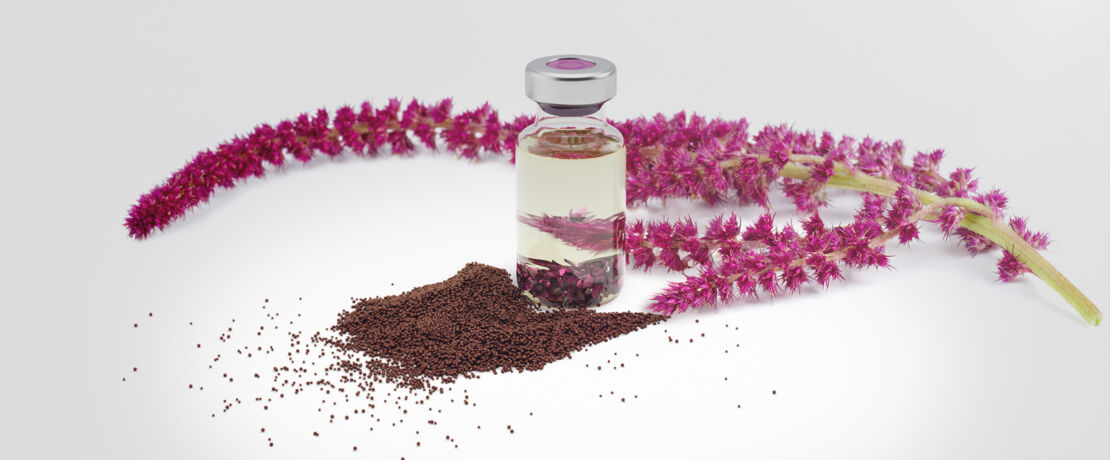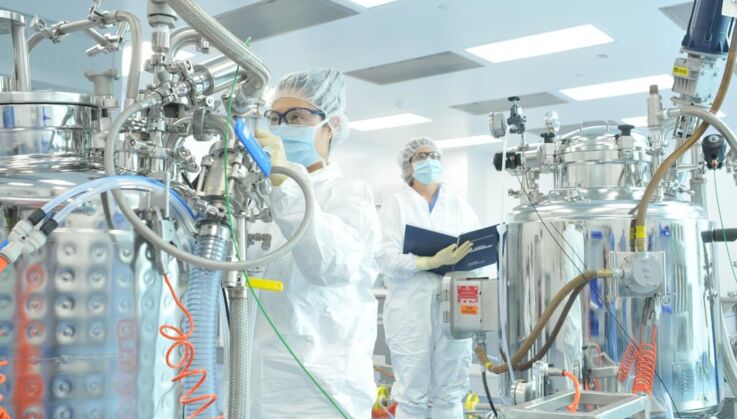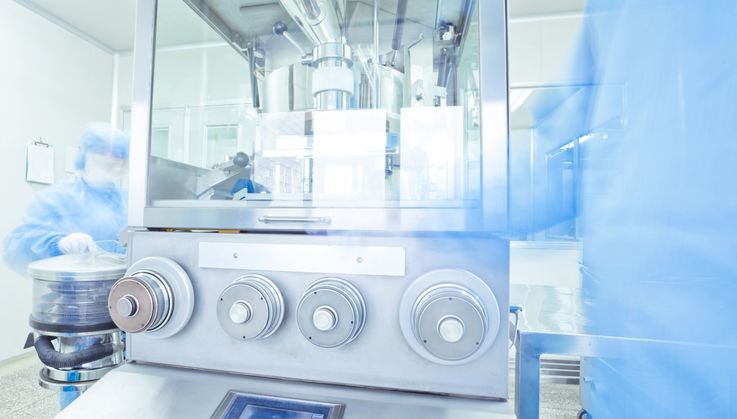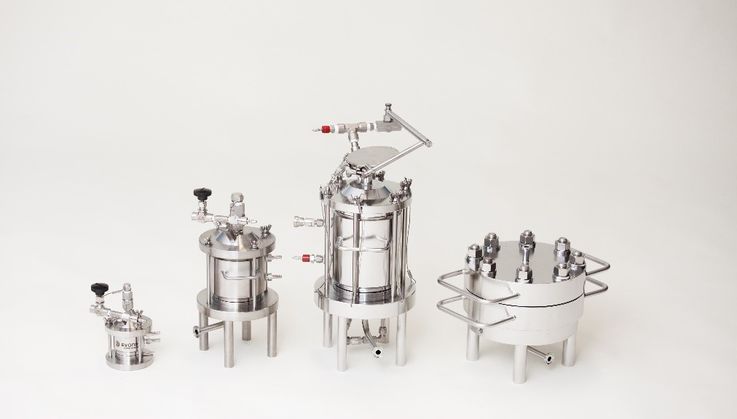
PhytoSquene®
Your plant-based squalene for parenteral applications
Preserving biodiversity and ensuring safety with non-animal-derived squalene
PhytoSquene® is our non-animal-derived squalene that can be used in vaccines and other pharmaceutical applications. This alternative to animal-derived squalene has many benefits. PhytoSquene® reduces the need to source pharma grade squalene from sharks, therefore helping to preserve biodiversity and ecosystems. It has a high and consistent quality and no harmful (carcinogenic, mutagenic or toxic) processes are involved in manufacturing, which is carried out in Germany using a proprietary process. PhytoSquene® is compliant with European Pharmacopoeia (Ph. Eur.) regulations. For your clinical and commercial needs, PhytoSquene® is now also available produced under GMP (Good Manufacturing Practice).
Interested in finding out more? Read on and get in touch with us.
What is squalene and why is it important?
Squalene is a natural organic molecule that is used in a range of applications including cosmetics, nutraceuticals and pharmaceuticals.

Chemical structure of squalene
In the healthcare industry, squalene is used in parenteral drug delivery as a component in adjuvant systems where it works as an additive that stimulates the body’s immune response to the active ingredient in a vaccine. Squalene allows the transport of antigens for their recognition by cells such as macrophages or dendritic cells. It is used, for example, in some influenza vaccines.
Where is squalene sourced?
Squalene is found in shark livers, higher fungi, yeast, microbes and many plant sources. Up until now, shark liver, for example, from the spiny dogfish (Squalus acanthias) has been the only source of pharma-grade squalene. It takes between 2,500 and 3,000 sharks to extract roughly a ton of the product. PhytoSquene® is Evonik’s non-animal-derived alternative that is based on amaranth oil.
Amaranth (Amaranthus caudatus) is a herbaceous plant that is cultivated in many regions of the world as a crop. It can be grown in colder regions including Argentina, Bolivia and Peru. Amaranth oil is extracted from the amaranth seed via supercritical CO2 reduction.
Why is animal-derived squalene problematic?
Animal-derived squalene contributes to loss of biodiversity and depletion of shark populations such as the spiny dogfish (Squalus acanthias). In the past, the shark species Squalus acanthias used to be one of the most populous in the world. However, overfishing has led this species to be classified in the IUCN Red List of threatened species as vulnerable globally and critically endangered in the Northeast Atlantic. Although measures have been in place in EU waters since 1999, these have for the most part been ineffective, and it is unclear if populations will be able to recover.
There are also safety issues concerned with animal-derived squalene. Many fish are highly contaminated with methylmercury which is extremely toxic and is a bioaccumulative environmental toxicant. Animal-derived squalene is also susceptible to batch-to-batch variations and variable quality, which can complicate regulatory procedures. Further, many patients cannot use animal-based products for cultural or religious reasons.
PhytoSquene® offers a sustainable non-animal-derived alternative for pharmaceutical applications.
Sustainability drives our plant-based squalene solution
Evonik is focusing on the United Nations’ 12 Sustainable Development Goals (SDGs) that are most relevant for our business. These can be grouped into four focus categories: fighting climate change, driving circularity, safeguarding ecosystems, and ensuring health and wellbeing.
PhytoSquene® protects life below water by avoiding the need to catch sharks. This helps conserve the marine ecosystems and increases biodiversity. By using renewable and biodegradable raw materials like amaranth, PhytoSquene® is helping to drive circularity. Using PhytoSquene® in parenteral applications increases patient safety and patient acceptance. Adding adjuvants to vaccines can increase the power of an API, which means less active ingredient must be used. This reduces potential side effects and enable the manufacture of a larger number of vaccines. It provides a non-animal derived option for patients who reject animal-based products for cultural or religious beliefs.
Work with us to bring patients safer vaccines that help preserve shark populations
We provide you with PhytoSquene® our non-animal-derived squalene that you can use for your formulation needs. For further information or to request a sample, get in touch with us!

Looking for information compiled in one document? Our brochures offer an overview of relevant details in just a few pages.






